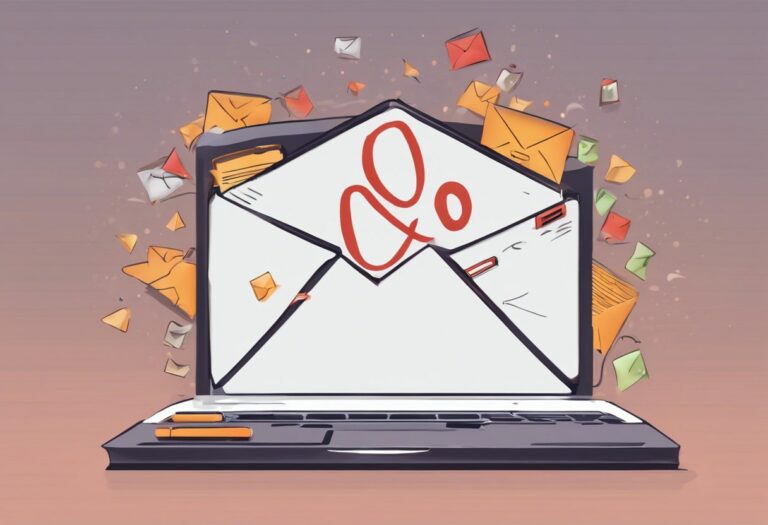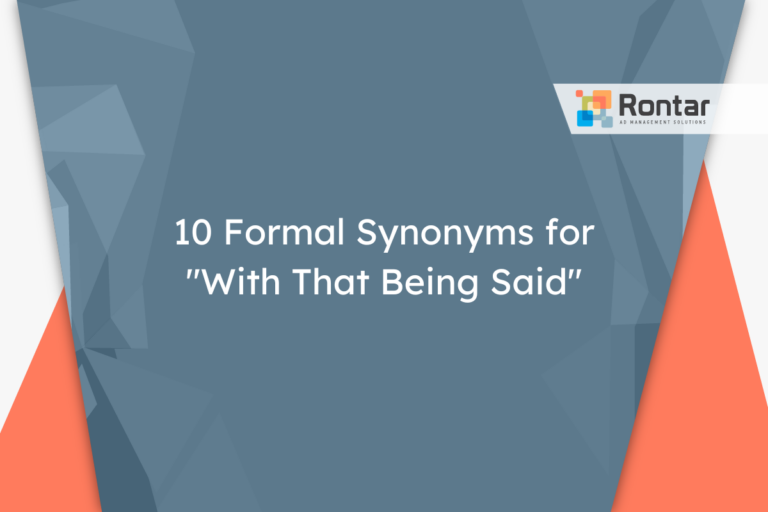10 Synonyms for “I Appreciate Your Help” in an Email

Expressing gratitude in professional emails is important, but using the same phrase over and over can feel repetitive. To help you mix things up, we’ve compiled a list of 10 alternatives to the common phrase “I appreciate your help.” Each alternative offers a different tone, ranging from formal to informal, ensuring you can convey your thanks in various situations. This guide also provides examples and situations where each alternative could be especially appropriate.
Is It Professional to Say “I Appreciate Your Help”?
Saying “I appreciate your help” is considered professional, formal, and polite. This phrase is a great way to show gratitude and acknowledge someone’s contribution to your work or project. It’s suitable for various situations, especially in a work environment where teamwork and cooperation are essential.
It’s perfect for moments when someone has gone out of their way to assist you, whether by providing valuable information, lending a hand during busy times, or guiding you through a complicated task. The key is to use it sincerely and in the right context to truly convey your gratitude.
Here’s an example of how to use “I appreciate your help” in an email:
Dear Sarah, I wanted to take a moment to thank you for the support you provided during the preparation of our team's presentation. Your insights on the project's data significantly enhanced our final output. I appreciate your help immensely, and I'm grateful to have such a dedicated colleague. Thank you once again, Emily
Pros:
- Conveys gratitude effectively.
- Enhances professional relationships.
- Makes the recipient feel valued and respected.
Cons:
- May seem overused or formulaic in some contexts.
- Certain situations may call for more specific expressions of thanks.
- Can be perceived as too formal in a casual work environment.
While “I appreciate your help” is generally well-received, there might be times you’ll want to use an alternative phrase. This could be because you’re looking for a way to convey your gratitude more uniquely or specifically. Alternatives can help personalize your message of thanks and adjust the tone to better fit the relationship you have with the recipient. Moreover, using synonyms or different expressions of appreciation can add variety to your communication, making it feel more genuine and less mechanical.
10 Other Ways to Say “I Appreciate Your Help” in an Email
Looking for different ways to express gratitude in an email? Here are 10 alternatives that can help you convey the same sincere thanks as “I appreciate your help”.
- Thank you for your support.
- Many thanks for your assistance.
- Your help has been invaluable to me.
- I’m grateful for your aid.
- Thanks for lending a hand.
- Your support means a lot to me.
- I couldn’t have done it without you.
- Thank you for pitching in.
- Your assistance is greatly appreciated.
- I owe you one for your help.
1. Thank you for your support
Compared to “I appreciate your help,” “Thank you for your support” feels more encompassing and warm. This phrase not only acknowledges the specific help provided but also suggests a broader sense of backing or endorsement. It’s both formal and polite, making it suitable for various professional settings.
This alternative is better suited when the help received has a significant impact on the project or task at hand. It’s ideal for expressing gratitude towards someone who has provided support beyond a single instance of help.
Dear Marcus, I wanted to express my sincere gratitude for the guidance and insights you provided during our recent project. Thank you for your support; it truly made a difference in our success. Best regards, Anna
2. Many thanks for your assistance
“Many thanks for your assistance” is a synonym that amplifies the expression of gratitude. It’s slightly more formal than “I appreciate your help,” and emphasizes the gratitude scale. This phrase is perfect for emails where you want to convey strong appreciation without losing a professional tone.
We recommend using this alternative when you want to stress the importance of the help received. It works well in situations where an individual’s contribution significantly eased a workload or solved a problem.
Dear Henry, Just a quick note to express my heartfelt appreciation for the support you've provided me. Many thanks for your assistance; it has been crucial to our progress. Warmly, Julia
3. Your help has been invaluable to me
This phrase conveys a strong sense of value and gratitude towards the assistance received. It’s more personalised and has a slightly more informal tone compared to “I appreciate your help,” but remains deeply polite and suited for professional correspondence.
This expression is particularly effective when the help provided has played a critical role in achieving a task or goal. It’s a way to communicate that their contribution was not just helpful, but essential.
Dear Lila, I can't thank you enough for the effort you've put into revising the report. Your help has been invaluable to me; we've reached a milestone because of it. Sincerely, Owen
4. I’m grateful for your aid
“I’m grateful for your aid” is a direct and formal expression of thanks, focusing explicitly on the assistance provided. This phrase is polite and straightforward, ensuring that the recipient clearly understands the gratitude felt.
This alternative is a suitable choice when the assistance received was specific and pivotal to the completion or success of a project. It’s a respectful way to acknowledge someone’s effort directly.
Dear Olivia, Through the challenges of the last project, your expertise was instrumental. I'm grateful for your aid; it truly made a difference. Best, Ethan
5. Thanks for lending a hand
“Thanks for lending a hand” is a more informal synonym for “I appreciate your help.” It’s casual yet polite, making it suitable for emails to colleagues you know well or those you share a friendly relationship with.
When the help you received was more practical or hands-on, this alternative shines. It’s great for acknowledging someone’s physical help or their willingness to jump in and assist with tasks.
Dear Alex, Your willingness to help out wherever there is a need is immensely valued. Thanks for lending a hand with the event setup; it was a huge success. Cheers, Jordan
6. Your support means a lot to me
This expression is both formal and emotional, making the recipient feel genuinely appreciated. It’s a bit more personal than “I appreciate your help” and conveys a sense of deep gratitude.
This phrase is best suited for situations where the support you received touched you on a personal level, or when someone has offered emotional or moral support in addition to practical help.
Dear Erin, During this challenging time, your guidance and patience have been a beacon of hope. Your support means a lot to me; thank you for everything. Warmest regards, Chris
7. I couldn’t have done it without you
This phrase emphatically credits the recipient for their critical role in a task or project’s success. It’s somewhat informal but remains a deeply polite way to acknowledge someone’s significant contribution.
It’s perfectly suited for occasions where someone’s input or effort was the linchpin in overcoming a challenge or achieving a goal. It tells the recipient that their help was not just useful, but indispensable.
Dear Sofia, The project faced many hurdles, but your expertise and tenacity made all the difference. I couldn’t have done it without you; your dedication is truly inspiring. Kind regards, Liam
8. Thank you for pitching in
“Thank you for pitching in” carries a more casual tone compare to the original phrase, but it’s equally polite and suitable for professional emails. This phrase is great for expressing gratitude towards someone who voluntarily contributed or took initiative.
When someone steps in to take on tasks without being asked, this phrase is a fantastic way to acknowledge their proactive help. It’s especially fitting in team environments where collaboration and initiative are valued.
Dear Sam, Your readiness to take on additional tasks during this busy period has not gone unnoticed. Thank you for pitching in; your initiative is greatly appreciated. All the best, Mia
9. Your assistance is greatly appreciated
This is a formal and polite alternative that closely mirrors the sentiment of “I appreciate your help.” This synonym is versatile and can be used in a wide range of professional situations to convey gratitude.
We recommend using this phrase when looking for a respectful and dignified way to thank someone, regardless of the level of formality of your relationship. It’s universal and ensures your message of thanks is clearly communicated.
Dear Jamie, The insights you shared have considerably improved our project's direction. Your assistance is greatly appreciated; thank you for your valuable input. Regards, Taylor
10. I owe you one for your help
While more informal, “I owe you one for your help” is a light-hearted and polite way to express gratitude, with an implied promise of future reciprocation. This phrase is best used with colleagues or peers with whom you have a friendly rapport.
This should be reserved for instances where the assistance provided has a personal touch or when you want to suggest that you’re happy to return the favor in the future. It adds a personal and relational dimension to the message of thanks.
Dear Nick, Your knack for finding solutions in tough situations really saved us this time. I owe you one for your help; let me know whenever you need a hand. Cheers, Ava
Final Thoughts
Finding the right words to express gratitude in emails doesn’t have to be challenging. With the 10 alternatives we’ve provided, you now have several ways to say “I appreciate your help” that range from the formal to the informal.
It’s essential to match the tone of your thank you to the relationship you have with the recipient and the context of their assistance. Remember, a well-chosen phrase not only communicates your thanks effectively but also strengthens your professional relationships. Start using these alternatives in your emails and see the positive impact they can have.






